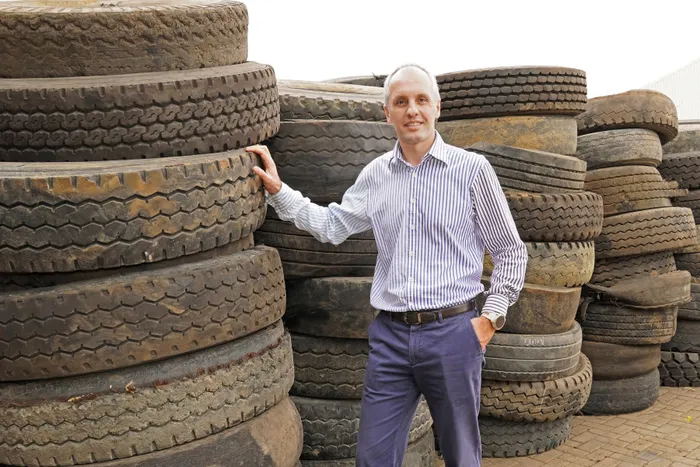KZN tyre recycler set to expand Hammarsdale facility

Dr Mehran Zarrebini, CEO of Mathe Group and founder of the Tyre Recycling Industry Association of South Africa (TRIASA), said South Africa’s tyre recycling sector has potential for growth if supported by investment, appropriate regulation, and access to new technologies.
Image: Supplied
KwaZulu-Natal-based tyre recycler Mathe Group is expanding its Hammarsdale facility and has identified devulcanisation as a critical opportunity to advance South Africa’s tyre recycling sector.
Dr Mehran Zarrebini, CEO of Mathe Group and founder of the Tyre Recycling Industry Association of South Africa (TRIASA), said South Africa does not currently operate a large-scale devulcanisation plant, limiting the potential of recycled rubber in local manufacturing and construction industries.
“Introducing a devulcanisation plant could open new markets for recycled rubber, reduce dependence on imported virgin rubber, and assist in managing the growing number of off-the-road (OTR) tyres, which are difficult to process,” he said.
Devulcanisation involves reversing the vulcanisation process used during tyre manufacture. Vulcanisation strengthens rubber by adding chemical crosslinks, making it more durable and resistant to heat, wear, and chemicals. Reversing this process is complex but would allow for more effective reuse of rubber in high-value products.
Zarrebini recently attended the European Tyre Recycling Association Conference in Brussels, where he observed progress in devulcanisation methods including microwave treatment, chemical softening using supercritical fluids, and cryogenic grinding combined with devulcanising agents.
He stated that these technologies enable the production of higher-quality recycled rubber materials suitable for various applications beyond low-grade fillers.
South Africa’s tyre recycling industry remains small. According to Zarrebini, when Mathe Group began operations in 2016, more than 16 entities were active in the space. However, the industry continues to face challenges, including limited financial support, regulatory uncertainty, and delays in finalising the Department of Forestry, Fisheries and the Environment’s new waste tyre management plan.
Mathe Group has processed over one million radial truck tyres. Its Hammarsdale facility is currently being upgraded with equipment for more efficient primary processing and steel recovery. The company says the recovered steel will contain less than 3% rubber contamination, increasing its resale value on the international market.
Due to the size of the local industry, Mathe Group manufactures different grades of rubber crumb for varied markets, unlike specialised European producers that operate at a larger scale. The company is also focusing on developing its secondary processing capacity to create value-added products from recycled materials.
Related Topics: